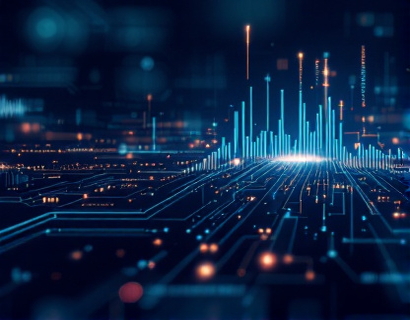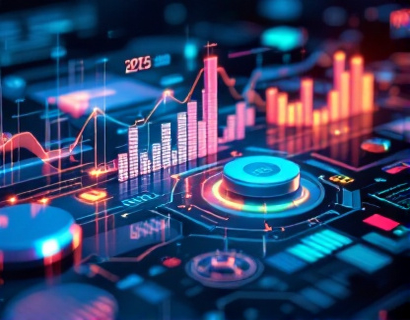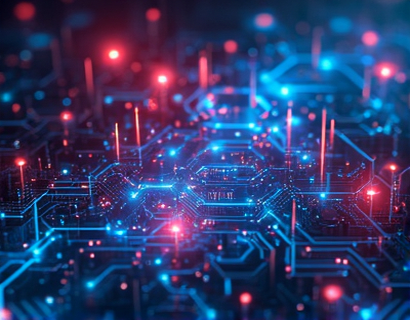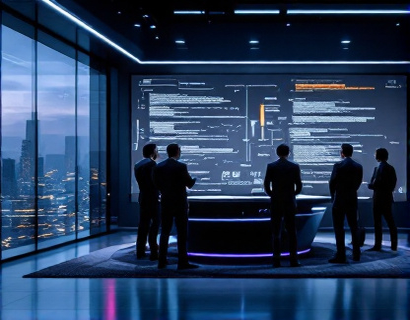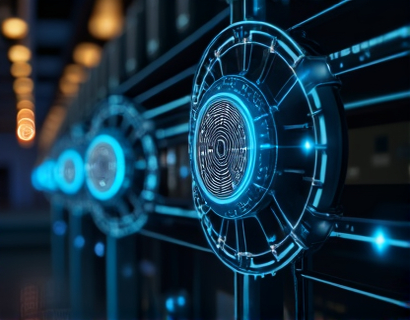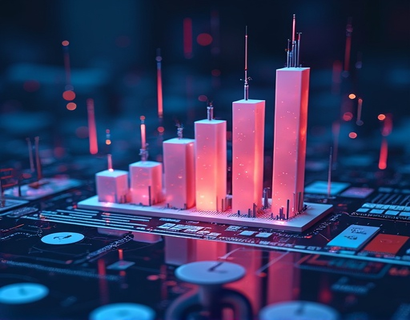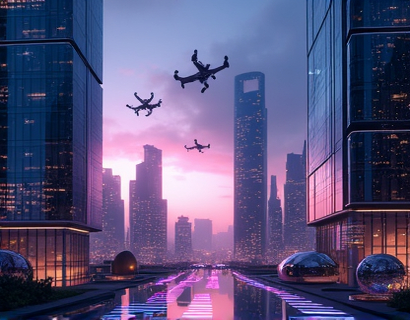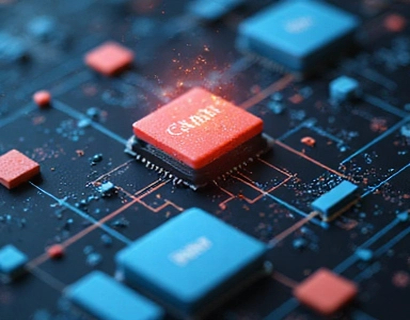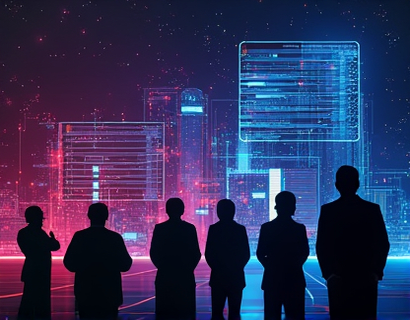AI-Powered Marketing Agents: Revolutionizing Business Growth through Intelligent Automation
In the rapidly evolving landscape of digital marketing, businesses are constantly seeking innovative solutions to stay ahead of the competition. One of the most transformative advancements in this domain is the emergence of AI-powered marketing agents. These intelligent tools leverage cutting-edge artificial intelligence to automate and optimize marketing strategies, significantly enhancing customer engagement and return on investment (ROI). By integrating AI-powered marketing agents, businesses can streamline their operations, allowing them to focus on core activities with greater confidence and efficiency.
The Role of AI in Modern Marketing
Artificial intelligence has become an indispensable asset in the marketing world. Unlike traditional marketing methods that rely heavily on human intuition and manual effort, AI-driven solutions offer precision, scalability, and real-time insights. AI-powered marketing agents are designed to analyze vast amounts of data, identify patterns, and make data-driven decisions that human marketers might overlook. This capability is crucial in a market where consumer behavior is constantly changing and competition is fierce.
Key Features of AI-Powered Marketing Agents
AI-powered marketing agents come equipped with a suite of advanced features that make them invaluable for businesses of all sizes. Some of the key features include:
- Data Analysis and Insights: AI agents can process and analyze large datasets to provide actionable insights. They can track customer behavior, preferences, and trends, enabling marketers to make informed decisions.
- Automated Campaign Management: These agents can create, manage, and optimize marketing campaigns across multiple channels, from social media to email marketing. They adjust strategies in real-time based on performance data, ensuring maximum impact.
- Personalization: AI agents can deliver highly personalized experiences to customers by analyzing individual preferences and behaviors. This personalization increases engagement and conversion rates.
- Chatbots and Customer Support: AI-powered chatbots provide 24/7 customer support, handling queries and issues efficiently. This not only improves customer satisfaction but also reduces the workload on human support teams.
- Predictive Analytics: By using machine learning algorithms, AI agents can predict future trends and customer behaviors, allowing businesses to stay ahead of the curve.
Enhancing Customer Engagement
One of the most significant benefits of AI-powered marketing agents is their ability to enhance customer engagement. Traditional marketing methods often struggle to deliver personalized experiences at scale, leading to disengagement and lost opportunities. AI agents, however, can analyze vast amounts of customer data to create tailored interactions. For instance, they can send personalized recommendations, offers, and content that resonate with individual customers, thereby increasing engagement and loyalty.
Moreover, AI-powered chatbots play a crucial role in maintaining continuous communication with customers. These chatbots can handle a wide range of queries, from simple information requests to complex issues, providing instant and accurate responses. This level of accessibility and responsiveness not only improves customer satisfaction but also builds trust and brand loyalty.
Maximizing ROI through Efficient Marketing Strategies
ROI is a critical metric for any business, and AI-powered marketing agents excel in maximizing it. By automating routine tasks and optimizing campaigns, these agents ensure that marketing budgets are used efficiently. Here’s how they contribute to higher ROI:
Firstly, AI agents can identify the most effective channels and strategies for reaching the target audience. Through continuous analysis and testing, they can allocate resources to the highest-performing channels, reducing waste and increasing returns.
Secondly, predictive analytics enable marketers to anticipate customer needs and behaviors, allowing them to launch targeted campaigns at the right time. This timing can significantly boost conversion rates and overall campaign effectiveness.
Lastly, AI agents can provide real-time performance tracking and reporting, enabling marketers to make swift adjustments to their strategies. This agility ensures that campaigns remain optimized, further enhancing ROI.
Streamlining Marketing Operations
For businesses, the integration of AI-powered marketing agents means a significant reduction in manual workload. These agents can handle a wide range of tasks, from content creation and scheduling to data analysis and reporting. This automation not only saves time but also reduces the risk of human error, ensuring that marketing operations run smoothly and efficiently.
Moreover, AI agents can work around the clock without the need for breaks, providing continuous support and monitoring. This round-the-clock availability ensures that marketing efforts are always ongoing, maximizing exposure and engagement opportunities.
Empowering Marketers to Focus on Core Activities
One of the most profound impacts of AI-powered marketing agents is their ability to free up marketers from mundane tasks, allowing them to focus on strategic and creative activities. By automating routine tasks, marketers can devote more time to innovation, strategy development, and building strong brand identities. This shift not only enhances their productivity but also fosters a more creative and dynamic work environment.
With AI handling the day-to-day operations, marketers can concentrate on high-level decision-making, such as brand positioning, market research, and long-term growth strategies. This focus on core activities can lead to more impactful marketing initiatives and a stronger competitive edge.
Case Studies and Real-World Applications
Several businesses have already reaped the benefits of AI-powered marketing agents. For example, a retail company implemented an AI-driven chatbot to handle customer inquiries and provide personalized recommendations. The result was a 30% increase in customer satisfaction and a 25% boost in sales within six months. Another example is a travel agency that used AI to optimize its email marketing campaigns, achieving a 40% higher open rate and a 20% increase in bookings.
These case studies demonstrate the tangible benefits of integrating AI into marketing strategies. By leveraging AI-powered agents, businesses can achieve significant improvements in customer engagement, ROI, and overall marketing effectiveness.
Challenges and Considerations
While the benefits of AI-powered marketing agents are clear, there are also challenges and considerations that businesses should be aware of. One of the primary concerns is the initial investment required to implement these technologies. However, the long-term savings and increased efficiency often outweigh the upfront costs.
Another consideration is the need for skilled personnel to manage and optimize AI systems. While AI agents can handle many tasks, human oversight and expertise are still essential for ensuring the best possible outcomes. Businesses should invest in training their teams to work effectively with AI technologies.
Privacy and data security are also critical issues. AI agents handle vast amounts of customer data, and ensuring this data is protected is paramount. Businesses must adhere to data protection regulations and implement robust security measures to maintain customer trust.
The Future of AI in Marketing
The future of AI in marketing looks promising, with ongoing advancements expected to further enhance the capabilities of AI-powered agents. As machine learning and natural language processing continue to evolve, we can anticipate even more sophisticated and intuitive marketing solutions. These advancements will likely lead to even greater personalization, automation, and insight generation, making AI an indispensable tool for businesses aiming to thrive in the digital age.
In conclusion, AI-powered marketing agents represent a revolutionary step forward in marketing automation and optimization. By leveraging these intelligent tools, businesses can achieve higher customer engagement, maximize ROI, and focus on core activities with confidence. As the technology continues to mature, the potential for AI to transform marketing and drive business growth is immense.



